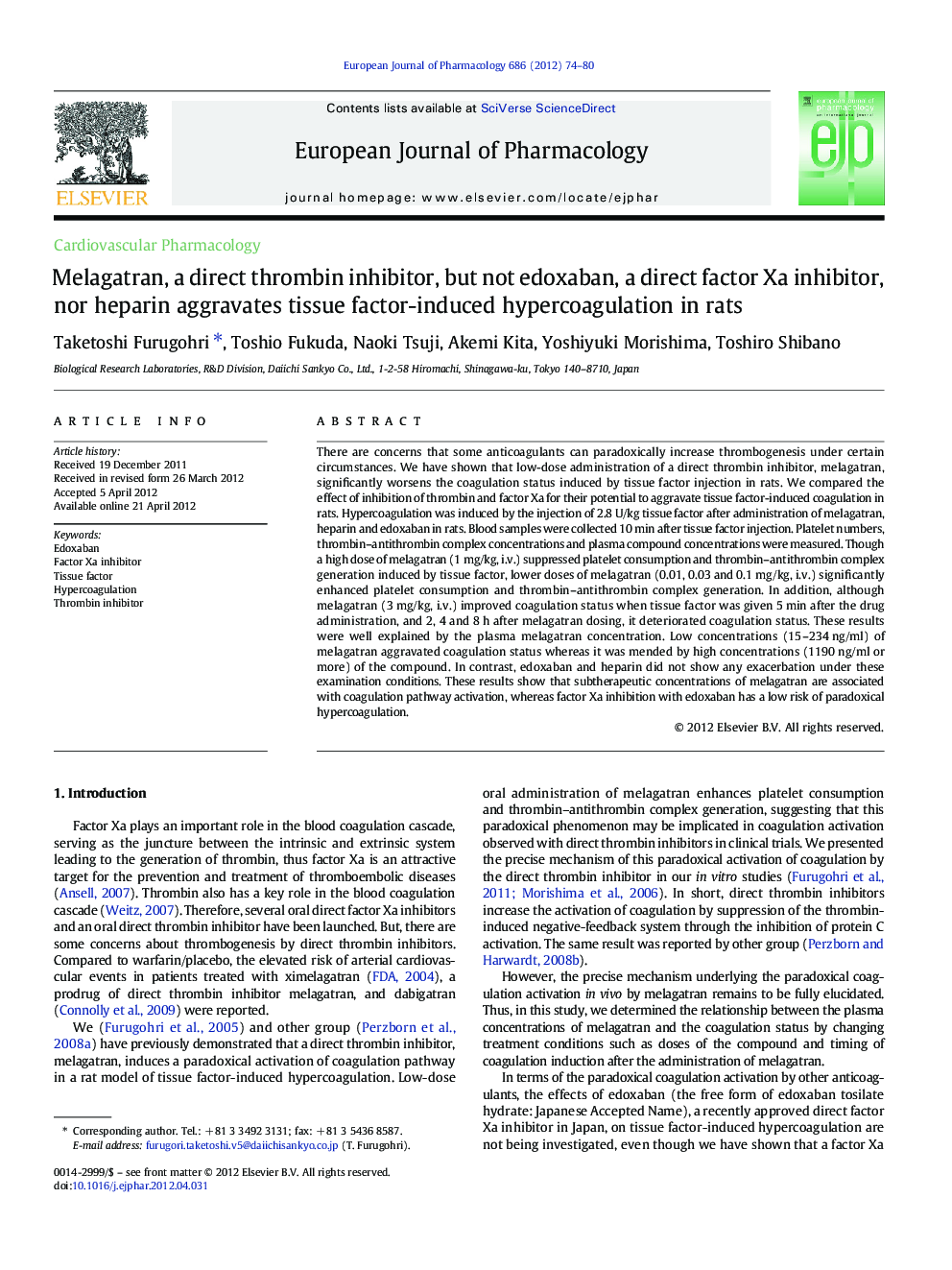| Article ID | Journal | Published Year | Pages | File Type |
|---|---|---|---|---|
| 5829375 | European Journal of Pharmacology | 2012 | 7 Pages |
There are concerns that some anticoagulants can paradoxically increase thrombogenesis under certain circumstances. We have shown that low-dose administration of a direct thrombin inhibitor, melagatran, significantly worsens the coagulation status induced by tissue factor injection in rats. We compared the effect of inhibition of thrombin and factor Xa for their potential to aggravate tissue factor-induced coagulation in rats. Hypercoagulation was induced by the injection of 2.8 U/kg tissue factor after administration of melagatran, heparin and edoxaban in rats. Blood samples were collected 10Â min after tissue factor injection. Platelet numbers, thrombin-antithrombin complex concentrations and plasma compound concentrations were measured. Though a high dose of melagatran (1Â mg/kg, i.v.) suppressed platelet consumption and thrombin-antithrombin complex generation induced by tissue factor, lower doses of melagatran (0.01, 0.03 and 0.1Â mg/kg, i.v.) significantly enhanced platelet consumption and thrombin-antithrombin complex generation. In addition, although melagatran (3Â mg/kg, i.v.) improved coagulation status when tissue factor was given 5Â min after the drug administration, and 2, 4 and 8Â h after melagatran dosing, it deteriorated coagulation status. These results were well explained by the plasma melagatran concentration. Low concentrations (15-234Â ng/ml) of melagatran aggravated coagulation status whereas it was mended by high concentrations (1190Â ng/ml or more) of the compound. In contrast, edoxaban and heparin did not show any exacerbation under these examination conditions. These results show that subtherapeutic concentrations of melagatran are associated with coagulation pathway activation, whereas factor Xa inhibition with edoxaban has a low risk of paradoxical hypercoagulation.
